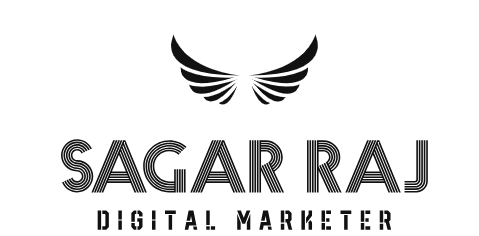Introduction
In today’s digital age, having a strong online presence is crucial for coaching institutions. SEO (Search Engine Optimization) is a powerful tool that can help coaching institutions increase their visibility, attract more students, and ultimately grow their enrollment. This blog post will outline the top three SEO strategies that coaching institutions can implement to achieve these goals.
1. Conducting Comprehensive Keyword Research
Explanation of Keyword Research
Keyword research is the process of identifying the words and phrases that potential students and parents are using to search for coaching services online. Understanding these search terms is vital because it allows you to optimize your website content to match these queries, making it easier for your institution to be found on search engines like Google.
Steps for Effective Keyword Research
- Use Tools: Leverage tools like Google Keyword Planner, SEMrush, or Ahrefs to identify relevant keywords.
- Identify Keywords: Focus on both primary keywords (broad terms like “math tutoring”) and secondary keywords (more specific terms like “SAT math preparation in New York”).
Tips for Targeting Keywords
- Long-Tail Keywords: These are more specific and less competitive, making it easier to rank higher in search results. For example, “online SAT math tutoring for high school students” is more targeted than “math tutoring.”
- Local Keywords: Incorporate geographic indicators to attract local students. For example, “best coaching institute in Chicago.”
- Examples: Effective keywords might include “online ACT prep courses,” “private chemistry tutoring in Boston,” or “best English coaching classes near me.”
2. Optimizing On-Page SEO Elements
Title Tags and Meta Descriptions
Title tags and meta descriptions are critical components of on-page SEO. They appear in search engine results and influence whether a user clicks on your link.
- Importance: A well-crafted title tag and meta description can improve click-through rates.
- Writing Tips: Ensure they are compelling and include primary keywords. For example, a title tag might be “Top SAT Prep Courses – Excel Coaching” and a meta description could be “Join our top-rated SAT prep courses to achieve your best score. Expert tutors, personalized lessons, and proven results.”
Content Optimization
Creating high-quality, informative content that addresses the needs and questions of potential students is essential.
- Quality Content: Write detailed blog posts, FAQs, and course descriptions that are valuable to your audience.
- Keyword Usage: Use keywords naturally within the content to avoid keyword stuffing, which can harm your rankings.
- Content Structure: Use heading tags (H1 for the main title, H2 for subheadings) to structure your content and make it easy to read.
URL Structure
SEO-friendly URLs improve user experience and search engine ranking.
- Best Practices: Keep URLs short, descriptive, and include primary keywords. Avoid using numbers or special characters.
- Examples: An optimized URL might be “www.yourcoachingwebsite.com/online-sat-prep” instead of “www.yourcoachingwebsite.com/page1?id=1234.”
Internal Linking
Internal links help with site navigation and distribute page authority across your website.
- Importance: They improve user experience and help search engines understand your site structure.
- Strategies: Link relevant pages and blog posts within your content. For example, a blog post about SAT prep tips could link to your SAT prep course page.
3. Enhancing Local SEO
Google My Business (GMB) Optimization
Optimizing your GMB profile can significantly boost your local search visibility.
- Setup: Ensure your GMB profile is complete with accurate information such as your address, phone number, website, and business hours.
- Reviews: Encourage satisfied students and parents to leave positive reviews, and respond promptly to all reviews to engage with your audience.
Local Citations and Directories
Listing your coaching institution in local directories helps improve local SEO.
- Importance: Consistency in your NAP (Name, Address, Phone Number) information across all directories is crucial.
- Best Practices: Ensure your details are correct and updated in popular directories like Yelp, Yellow Pages, and educational directories.
Local Content Creation
Creating content that resonates with your local audience can drive local traffic.
- Relevant Content: Write blog posts about local events, success stories of local students, and tips specific to your geographic area.
- Examples: Topics might include “How Our Coaching Helped Chicago Students Ace the SAT” or “Upcoming Educational Events in Boston.”
Mobile Optimization
With the increasing number of searches conducted on mobile devices, ensuring your website is mobile-friendly is essential.
- Importance: Mobile optimization enhances user experience and is a ranking factor for local searches.
- Best Practices: Use a responsive design, ensure fast loading times, and make navigation easy on mobile devices.
Conclusion
By implementing these top three SEO strategies—conducting comprehensive keyword research, optimizing on-page SEO elements, and enhancing local SEO—coaching institutions can improve their search engine rankings, attract more students, and grow their enrollment. Start applying these strategies today and watch your online presence flourish.
Call to Action
Are you ready to take your coaching institution’s SEO to the next level? Contact us today for a free SEO audit or consultation. Let’s work together to boost your online visibility and attract more students. Subscribe to our blog for more digital marketing tips and strategies tailored for educational services.
